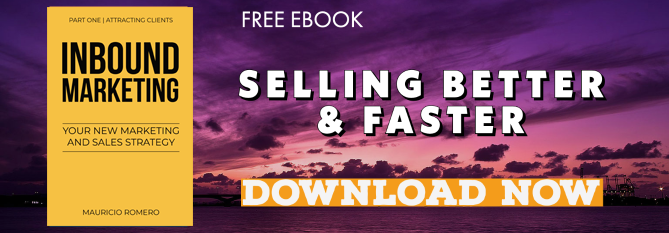In previous articles, we have talked about:
Marketing strategies for a family/medium size company
How do I Carry out a Digital Marketing Strategy for my Family/Middle Sized Company?
Now that you know how this strategy works, we want to share with you in more detail, about some of the tangible benefits that your company can get from it.
Here we go!

1. It is more affordable than traditional means
We have already talked about how traditional means of marketing work. We've mentioned that:
- Their message is brief (a slogan, jingle...)
- They're intrusive
- They don't respond to the way people buy these days (internet)
- Above all, they are very expensive and you can't measure their success (or you can, but it's almost as expensive as the campaign is)
With which, they can indeed be carried out and yes, people will probably be aware of your brand but not in depth, and not at their active buying moment (rather when they are being passive recipients of any advertisement). All of it, at very high costs. If your company has the resources to compete with giants creating very expensive and not-in-depth strategies, go ahead. But, it's always better to invest in campaigns that are more thought-out and less expensive.
2. You create a new and different relationship with your clients
Since Inbound Marketing isn't an intrusive kind of marketing because it focuses on helping customers find the information that they need, when they need it, a different relationship with them is built. You are no longer someone who wants to sell something to them at all cost (whether they need it or not), you're rather someone who knows has the solution that they are looking for, and who simply offers it to them.
What's the deal with this? What do you get from it? Satisfied customers, customers that bring more customers. Ambassadors of your brand thanks to your good service. The relationship that you have with them isn't over with a single purchase;
you keep in touch with the clients and continue communicating with them afterwards as well. There's always thus, the possibility of selling something to them again and/or having them recommend your product or service with their friends.
3. Your marketing and sales teams work together
Yes, that headache is over. Your marketing and sales teams stop being enemies and "throwing the ball" at each other to learn instead how to work together, based on a very specific methodology which states, step by step, what tasks should each team do. The responsibilities are well defined and your teams are given the technological tool (software) that they need so they can finally work together.
4. You put a CRM to work, automatizing processes and creating a clients database that will be stable and permanent
Forget about the likely-to-happen sales that never did happen due to poor customer service. Once each client is automatically registered in the CRM, the following steps to assist this client are automated so the communication with your client becomes an ongoing process. Not only does the company-client communication benefit from this, but the company-salespeople communication as well, since you can also automate the activities assigned to each one of your sales people and give each one of them a follow-up.
A CRM also means no more databases that:
- Aren't updated
- Go missing
- Have different versions of them
You'll have a single CRM instead, one that has all the information updated live, information that doesn't disappear whenever any of your salespeople stops being a part of your team. It is with this database that you will be able to:
- Encourage the communication that you have with your customers
- See the history you have with each one of them
- Define what steps to take with each of your clients and automate these steps
- Continue nurturing your clients with relevant information, information that they themselves asked for (not SPAM)
With a CRM, your company owns its sales processes, its database.
5. Your site ranks better as an organic result
Your site has two options to appear first as a search result when search engines (such as Google) offer their best answers:
- Paying for it
- Positioning your brand yourself, based on good-quality content
Inbound Marketing offers your site the opportunity to rank well -without having to pay for it- based on:
- A well designed strategy
- Knowledge on SEO and keywords
- Constant publication of good quality content
6. Measurable data and ROI
Saving the best for last, what we all look for: to be able to measure the investment of the resources. With an Inbound Marketing strategy, you can measure the scope of your strategy and, according to the periodic review of these results, you'll be able to:
- Constantly adapt your strategy, forgetting about tactics that doesn't work and reinforcing what is indeed working
- Measure the ROI that you gain thanks to your strategy and evaluate, based on real data, if your investment has been worth it.
 As you can see, there are several benefits that this strategy can bring to your company. If you are interested in learning more about Inbound Marketing and how to apply it, contact us. We'd love to know more about the marketing needs of your company and find out together if we are the answer you are looking for to make your business grow.
As you can see, there are several benefits that this strategy can bring to your company. If you are interested in learning more about Inbound Marketing and how to apply it, contact us. We'd love to know more about the marketing needs of your company and find out together if we are the answer you are looking for to make your business grow.
 Paulina Romero H
Paulina Romero H